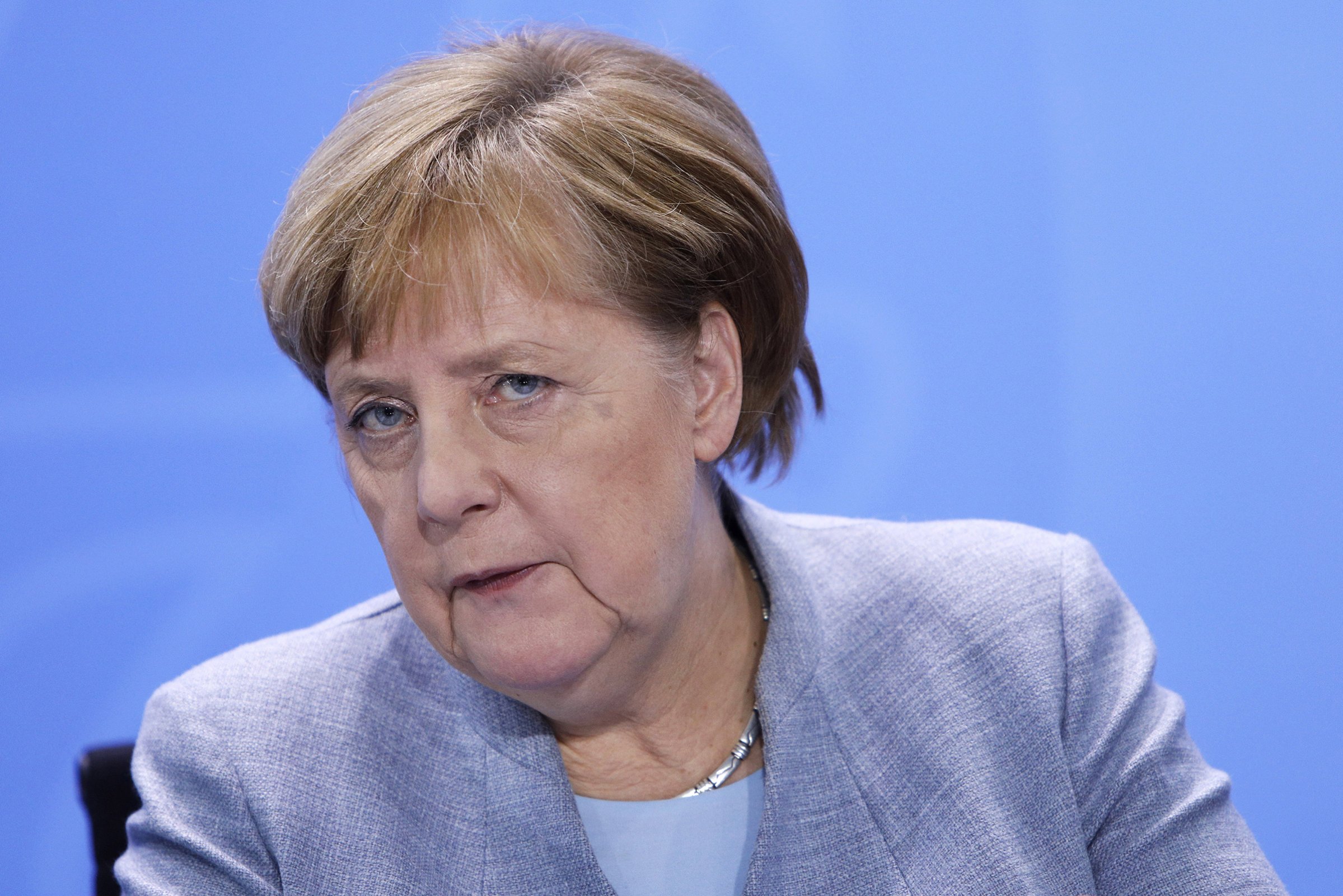
When Donald Trump was elected, Germany’s Angela Merkel didn’t join other world leaders in trying to engage the unpredictable new President. There was no flattery, no urgent appeals and no friendly rounds of golf. Instead, she issued a carefully coded message of congratulations making clear her expectation that, whatever he said to rouse his supporters, Trump would defend the principles and institutions that past U.S. Presidents–and Merkel herself–have done their best to promote. “Germany and America are bound by common values–democracy, freedom, as well as respect for the rule of law and the dignity of each and every person, regardless of their origin, skin color, creed, gender, sexual orientation or political views,” Merkel wrote. “It is based on these values that I wish to offer close cooperation.”
Yet President Trump appears no more interested in Western values and multilateralism than he was as a candidate, and the current state of German politics suggests Merkel will now be less able to defend them. Her standing damaged by a disappointing election result, Merkel is too busy struggling to form a government to fulfill her duties as “leader of the free world.” Coalition talks between her CDU party and its reluctant partners collapsed on Nov. 19, likely pushing negotiations into next year.
This is bad news for Europe, in particular, because a distracted Merkel will leave the E.U. without forceful leadership at a time when strong leaders are needed to reform the euro zone, as well as European fiscal and banking policies. France’s President Emmanuel Macron needs Merkel to help create an ambitious reform “road map” in coming months. The pair already have big disagreements, and Merkel is now in no position to sell concessions at home. If Merkel fails to form a government and Germany returns to elections in 2018, European reform will be on life support.
Beyond Europe, Merkel will struggle to raise her country’s international profile as she attempts to keep potential coalition partners happy and the far right off balance inside Germany. With Europe’s anchor distracted by the fractious politics of her own country, and Trump convinced Washington can’t trust even its longtime allies, international politics has become a fight of every nation for itself.
Merkel isn’t going anywhere. Her party remains Germany’s strongest, and she is more popular than the party. Her approval rating stands at 54%, according to one poll, even after coalition talks fell apart. Germany’s economy is in good health. But the West needs more leadership than a mercurial Donald Trump and a weakened Angela Merkel can now provide.
More Must-Reads from TIME
- Donald Trump Is TIME's 2024 Person of the Year
- Why We Chose Trump as Person of the Year
- Is Intermittent Fasting Good or Bad for You?
- The 100 Must-Read Books of 2024
- The 20 Best Christmas TV Episodes
- Column: If Optimism Feels Ridiculous Now, Try Hope
- The Future of Climate Action Is Trade Policy
- Merle Bombardieri Is Helping People Make the Baby Decision
Contact us at letters@time.com